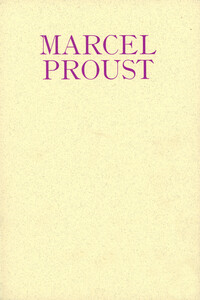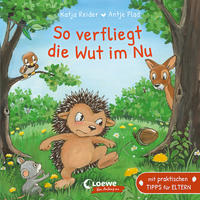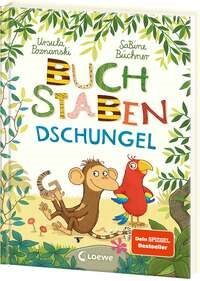Your Search Results
-
Martini Maria Cristina | MMC Edizioni
MMC EDIZIONI is a publishing house based in Rome.Born in 2001 as a generalist, along the time it has specialized almost exclusively in non-fiction, dedicated in particular (but not only) to the city of Rome.The main series, called "A walk with history" offers an alternative vision of the city through the historical reconnaissance and analysis of some of its urban furnishings that are not taken into consideration such as small fountains, clocks, inscriptions, sacred shrines, plaques. This series stands out for a particular graphic style and for the abundance of photographs, specially made for these books.Other series on Rome are instead dedicated to in-depth studies on specific historical and customs themes, or on the mysterious aspects of the city that also reveal its dark side.In the MMC catalogue are other non-fiction books on topics such as Music, Interculture, Anthropology and a series of stories for children encouraging solidarity, non-violence and respect for the environment
View Rights Portal
-
Promoted ContentFebruary 2010
La Guerra - Der Krieg
Schriften aus den Jahren des Spanischen Bürgerkriegs
by Machado, Antonio / Herausgegeben von Vogelgsang, Fritz; Übersetzt von Vogelgsang, Fritz
-
Promoted ContentSeptember 1994
Schreiben ohne Ende
Siebte Publikation der Marcel Proust Gesellschaft
by Rainer Warning
Warning, Rainer: Schreiben ohne Ende. Prousts Recherche im Spiegel ihrer textkritischen Aufarbeitung. Keller, Luzius: Annäherungen an Albertine. Milly, Jean: Albertine disparue. Neue textgenetische und literarische Probleme infolge des wiederaufgefundenen Typoskripts. Grésillon, Almuth: Prousts vagabundierendes Schreiben. Zur Genese der "Matinée" in La Prisonnière. Nitsch, Wolfram: Phantasmen aus Benzin. Prousts Automobile in textgeschichtlicher Sicht. Compagnon, Antoine: Die "danse contre seins". Hölz, Karl: Das Motiv des "aéroplane" bei Marcel Proust. Die narrative Verwandlung eines Avant-Textes in einen Kon-Text. Sprenger, Ulrike: Genese und Genesis - Abraham in Combray. Dällenbach, Lucien: Rochengeschichte. Von Chardins "Raie" zu Prousts "Cris de Paris". Stierle, Karlheinz: ;arcel in der Arena-Kapelle.
-
 Trusted Partner
Trusted Partner
-
 Trusted Partner
Literature & Literary StudiesApril 2009
Trusted Partner
Literature & Literary StudiesApril 2009Mientras los hombres mueren
Carmen Conde
by Catherine Davies, Jean Andrews
Carmen Conde is a major figure in twentieth-century Spanish poetry. Though neglected up to now, Mientras los hombres mueren is the most important collection of war poetry to emerge from the Spanish Civil War. It was first published, in a limited edition, in Italy in 1953. Though it has been included in its entirety in anthologies of her work published in Spain in 1967, 1986 and 2007, this is the first free-standing edition since 1953 and the first ever critical edition. The collection was written in 1938-39, in Valencia, then the seat of the Republican Government. In prose poetry densely packed with imagery of nightmarish destruction, Conde gives voice to the experience of women and children suffering bombardment from air and sea, hunger and homelessness, and the loss of husbands, brothers and fathers at the front. The second half of the collection, 'A los niños muertos en la guerra', is an extended elegy for all those children killed in bombing raids during the war. This edition will be of interest to students and scholars of the Civil War and lovers of Spanish poetry in general. ;
-
 Trusted Partner
July 2022
Trusted Partner
July 2022So verfliegt die Wut im Nu
Mit praktischen Tipps für Eltern
by Katja Reider
That's How Anger Flies Away in a Flash About releasing anger and giving comfortThe little hedgehog is terribly angry! The sparrow has just sat down in hedgehog's little house and that belongs to the hedgehog alone! He rages and cries from all the anger. Fortunately, the other animals know what to do: Bear brings a pillow for him to punch, Deer stomps the anger into the ground and Mouse shows how to catch his breath again. So even the biggest anger is quickly gone.• Loving illustrations with practical tips, which immediately help with feelings of anger• Developed with psychological advice: Using rituals and rhymes to comfort and calm• Bestselling and innovative ’Ritual‘ concept: Over 55,000 copies sold of the series and over 200,000 copies gifted to German families by the Ministry of Education
-
 Trusted Partner
August 1978
Trusted Partner
August 1978Tagebuch des Schweinekriegs
Roman. Aus dem Spanischen von Karl August Horst
by Adolfo Bioy Casares, Karl August Horst
Diario de la guerra del cerdo - so der Originaltitel dieses Werks aus dem Jahr 1969 - ist der vierte Roman des argentinischen Autors, er spielt in Buenos Aires und in Bioys seit Jahren bevorzugtem Milieu des bescheidenen Mittelstands. Don Isidro Vidal, der Protagonist, gerät unvermutet in Umstände, die das kleine Einmaleins seiner Welterfahrung nicht lösen kann. Er ist Rentner, hat, da seine Frau ihn nach kurzer Ehe verließ, den Sohn allein aufgezogen. Vidal junior, revolutionär indoktriniert, straft den Alten und sein gedankenloses Dasein - im Zimmer hocken, Radio hören, im Park spazieren, wöchentliches Trucospiel im Café mit »den Jungens«, gleichaltrigen ausrangierten Männern – mit Verachtung. Vidal Vater ist sich seines Alterns bewußt: Erkenntnis und Toleranz der Schwächen seiner Freunde, zunehmende Unsicherheit im Umgang mit Nachbarn und Fremden. Ein Zahnübel zieht ihn für einige Tage aus diesem beschränkten Verkehr, und als er zurückkehrt, weiß er als einziger nicht, daß ein Krieg der Jungen gegen die Alten, die »Schweine«, ausgebrochen ist und ihre Liquidierung betreibt. Der Krieg ist nicht so sehr Absage der Jugend an die Vergangenheit, wie Aufruhr gegen die Bilder ihrer eigenen Zukunft. Während der Schreckensereignisse verhalten sich die Stammtischfreunde verschieden: geil, geldgierig, würdelos, angstvoll versagend. Vidal besteht den Krieg in ähnlicher Weise wie sein bisheriges Leben. Er ist, ohne es im geringsten zu wissen, ein Held.
-
 Trusted Partner
January 1991
Trusted Partner
January 1991Die verlorene Ehre der Katharina Blum
Mit Materialien und einem Nachwort des Autors
by Böll, Heinrich
A young woman inadvertently becomes the centre of the sensationalism and political agitation of a boulevard newspaper. After falling in love with a young man who is wanted by police for “radicalism”, Katharina Blum’s life is made unbearable by journalists who scrutinize and make public every aspect of her private life. The consequence of this violation of her privacy by the media is the beginning of the story: Katharina Blum has shot a journalist and another photographer has been shot by an unknown woman. This is the shocking incident that cries for interpretation and clarification. The pattern of the street ballad of a woman’s lost honour is used here for its emancipatory and aggressive potential: The woman who has been humiliated in the public opinion fights back – if necessary with violence. Böll added in a preface: “Characters and storyline are a work of fiction. Should similarities to the journalistic methods of a certain boulevard newspaper be detected, these similarities are neither intended nor accidental but inevitable.” "Böll sustains a masterly and insidious tension to the end. He is detached, angry and totally in control" (The Times) "Such is the force of Böll’s conviction, the clarity of his vision and the icy economy of his unemotive prose that within this short space he has distilled a spirit that burns into the palate the unmistakeable and lasting tang of truth" (Sunday Times) "A marvel of compression and irony" (Sunday Telegraph)
-
 Trusted Partner
March 1999
Trusted Partner
March 1999Die Geburt des Mondes
Schwarze Geschichten aus Kuba
by Lydia Cabrera, Guillermo Cabrera Infante, Susanne Lange
Guillermo Cabrera Infante wurde 1929 in Gibara, Kuba, geboren. Mit 12 Jahren kam er nach Havanna und nach einem kurzen Studium an der Escuela de Periodismo, der Journalistenschule, arbeitete er als Journalist. Er war Mitgründer der Cinemateca de Cuba und leitete diese von 1951 bis 1956. Ab 1954 schrieb er, unter dem Pseudonym "G. Caín", Filmkritiken für die Wochenzeitschrift Carteles. Er kämpfte gegen das diktatorische Regime Batistas, und seine Eltern waren Mitgründer der kubanischen Kommunistischen Partei. Nach der kubanischen Revolution war er einige Jahre Direktor des nationalen Filminstituts und Chefredakteur der Literaturbeilage Lunes de Revolución, die 1962 eingestellt wurde. Guillermo Cabrera Infante wurde im gleichen Jahr zum Kulturattaché der kubanischen Botschaft in Belgien ernannt. 1965 legte er sein Amt nieder und ging ins freigewählte Exil. Der Autor brach damals, noch vor dem berühmten Padilla-Fall, mit dem Regime Fidel Castros, das die Intellektuellen auf Kuba immer stärker verfolgte und zensierte. Seit 1967 lebte Cabrera Infante in London. Der Autor wurde mit seinem Roman Tres tristes tigres, 1967, (dt. Drei traurige Tiger, 1987) bekannt, der den Preis Biblioteca Breve in Spanien 1964 gewann. Dieser Roman gilt als eines der Hauptwerke der lateinamerikanischen Literatur. Zu den bedeutenden Werken Cabrera Infantes gehören außerdem: Holy smoke (dt. Rauchzeichen, 1990), Vista del amanecer en el trópico (dt. Ansicht der Tropen im Morgengrauen, 1995), Así en la paz como en la guerra (dt. Wie im Kriege also auch im Frieden, 1996), La Habana para un Infante difunto und Cine o sardina (dt. Nichts als Kino, 2001), eine mitunter giftige Liebeserklärung an das Kino. 1997 erhielt Guillermo Cabrera Infante den renommierten Premio Cervantes. Guillermo Cabrera Infante starb am 21. Februar 2005 in London.
-
 Trusted Partner
Children's & YAJuly 2019
Trusted Partner
Children's & YAJuly 2019Buchstabendschungel
by Poznanski, Ursula / Illustrated by Büchner, SaBine
Help the animals to find their letters ... easy as ABC!• By best-selling author Ursula Poznanski• Get a first feeling for letters and words!• Humorously illustrated, with funny details!After a big storm in the jungle, the little monkey collects many funny-looking things. “That are letters,” knows the smart parrot. “Somebody must have lost them”. And indeed, monkey and parrot come across strange animals that seem like something is missing. A "iger", a "nake", a "at" … An exciting letter story for reading aloud and early reading, guessing and poetizing by yourself!
-
 Trusted Partner
May 2023
Trusted Partner
May 2023How Philosophers Fail Themselves
The somewhat different historyof philosophy
by Otto A. Böhmer
— Philosophy for beginners — For philosophy enthusiasts — A pleasant read This truly brilliant book tells of the sometimes sublime, sometimes exhilarating efforts of philosophers to maintain their attitude in everyday life without forgetting the meaning of their own words – and how they ultimately failed to do so. The minor, sometimes bizarre events in the lives of the great philosophers fit so aptly in the picture of the respective philosophy that one has to assume they could have been conceived to keep the associated intellectual giant in a strange and memorable mood. A book of cheerful science, full of wit, narrative and linguistic eloquence.




















